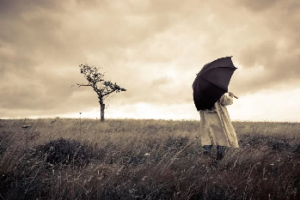
The all, the whole and the divine
After developing delicate and controversial subjects such as pain, waiting in the very sense of hope, which Byung-Chul uses the philosophical term of “containment”, he finishes his book, which could be said to be his first philosophical writing, even though he did his doctoral thesis on Heidegger, with what must be the most controversial for today’s philosophy: the whole.
such as pain, waiting in the very sense of hope, which Byung-Chul uses the philosophical term of “containment”, he finishes his book, which could be said to be his first philosophical writing, even though he did his doctoral thesis on Heidegger, with what must be the most controversial for today’s philosophy: the whole.
At the end of the 19th century and the beginning of the 20th, physics, science and philosophy that seemed full of their “knowledge” took a reversal, the linguistic shift, but there is another one underway that is even more profound: the revenge of the sacred, After leading humanity to two wars, to the exhausting work of the “Society of Fatigue” (in English it was translated as the Burnout Society), idealistic arrogance wants to proclaim the death of God, the all or the whole is what, the last James Webb’s research appears to be unanswered.
Even the Big Bang theory is at stake, the arrow of time may not be correct, in other words, time may be a human abstraction, galaxies seen at the ends of the universe do not coincide with the physics of the Standard Model (in this case of Cosmology) and show that the concept needs to be revised, but let’s leave this to physicists and cosmologists, our biggest dilemma is still: “what are we and where did we come from”, translated into philosophical language: what is being, and what is Being of beings (or coming from particles and cosmic dust).
This is expressed in the Theory of Everything, the name of the film, based on the book by Stephen Hawking’s wife, Jane Hawking, entitled: “Travelling to Infinity: My Life with Stephen”.
For a while we forgot this dilemma, addressed since the beginning of this series of posts about the reading of “Heidegger’s heart” by Byung-Chul Han, not just the anthropological sleep advocated by Foucault, but the idealistic sleep of the reason of our time, that which caused a forgetfulness of being.
The beginning of the chapter is a provocation, I believe, when quoting Hegel in the epigraph: “Truth is the whole”, since Heidegger and his rereading of Han return to that “turn” in which “the truth of the essence of being withdraws into the being” (pg. 337), where consciousness itself is already “the concern to distinguish between natural knowledge and real knowledge” (pg. 340), it is in the dialectical experience of pain: “the dialectical worker is a sufferer. He goes through an ordeal, exhausts himself in the power of the Absolute, and does so precisely to live” (pg. 346), the emphasis on living belongs to the author.
“Those who still speak of the whole today raise suspicions” (pg. 455) is the opening sentence of the final chapter, but idealism never abandoned the abstract notion of the Absolute, because it is an imperative of any theory to outline contours where the truth is valid, for This is the phrase in the epigraph of the final chapter, I think, but “in Heidegger’s heart beats for the totality from the beginning” (pg. 455), he expresses it in his pathos for everything: “What was said perhaps indicates that the present work intend to be philosophical, insofar as it was undertaken in the service of the ultimate totality” (pg. 456), but in contrast to the Hegelian, “the Heideggerian whole does not capitalize on the death of the particular” (pg. 457), if we want to return to physics is worth rereading by Werner Heisenberg: “The part and the whole”, where we see the thresholds of modern quantum physics, where there are several traces of well-defined philosophy.
Understanding pain, containment and anguish and identity in difference (we have already stated that it is not the idealistic difference), the Heideggerian whole is not a place of birth, not a place of origin, but a place of birth” (pg . 459), a “non-metaphysical house as a dwelling space” (pg. 459), we would say the dwelling of the Being, full and divinized.
And also, its mundane totality, is not contaminated by the climate of postmodern thought, in it one can notice the total lack: “of odor, landscape or nature” (pg. 460), “with the history of being Heidegger writes a certain metanarrative”, but it cannot be denied that “Heidegger’s thought also has metaphysical traits” (pg. 461), his philosophy “are not language games [like Derridá], nor speeches”. (pg. 463), for him there is the being of language, “language games would be an ontic phenomenon” (pg. 463).
We develop the question of the voice (see the post), but Han asks: “in what affective tone does today’s thinking place this voice”, is it not a response to that truth that dwells within every man? not following it Is it accepting pain, anguish, difference and dispute outside of conflict and war?
There is that inner voice, to those who know how to do silence and epoché, there is the Being that is the whole and that lives within us, but we have to go through pain, through donation and accept the difference.
HAN, B.C. (2023) Coração de Heidegger: sobre o conceito de tonalidade afetiva em Martin Heidegger (Heidegger’s heart: on the concept of affective tonality in Martin Heidegger). Transl. Rafael Rodrigues Garcia, Milton Camargo Mota. Brazil, Petrópolis: Vozes.









